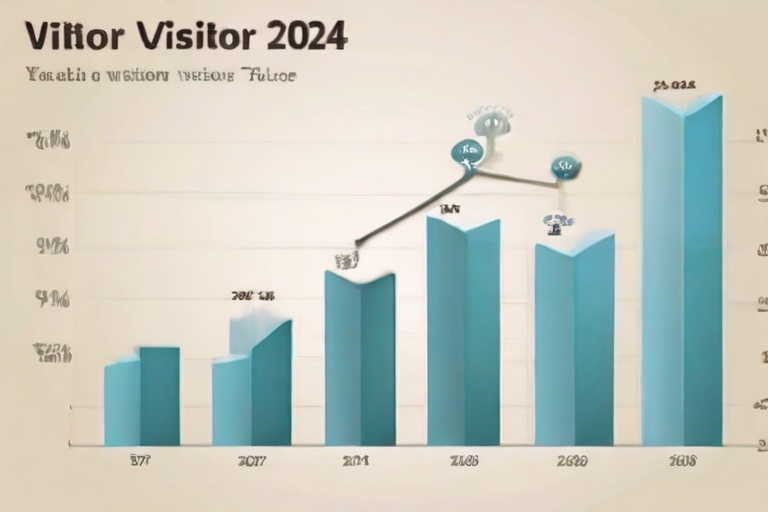Technical SEO and Content SEO both significantly impact digital marketing success in 2025, but technical SEO will edge out due to its evolving complexities and integral role in site performance. As businesses continue prioritizing efficient digital experiences, technical SEO becomes crucial in ensuring high-speed, secure, and user-friendly websites. Technical SEO’s enhancements such as improved page load speeds and mobile-first design will likely dictate broader market trends.
Table of Contents
- Understand the Role of User Experience in SEO
- How Mobile Experience Impacts Search Rankings
- Technical SEO vs Content SEO in 2025 Which Drives Revenue?
- How Technical SEO Directly Influences Conversion Rates
- SEO Managers Utilize AI Tools to Optimize Content
- Can AI Tools Improve Keyword Strategy Effectiveness?
- What Makes SEO in 2025 Different from Past SEO?
- How User Intent Will Shift Content Creation Strategies
- How Do SEO Strategies Balance Technical and Content Priorities?
- Do Technical Audits Influence SEO Content Prioritization?
Key Takeaways
- Technical SEO focuses on the backend improvements that enhance website performance and user experiences collectively.
- Content SEO captures and retains audience attention through high-quality and relevant information.
- Businesses investing in technical SEO can experience up to 75% improved tracking and better user interactions.
- In 2025, content SEO benefits organic search traffic growth and reputation management significantly.
- Matrics Rule demonstrates expert knowledge in optimizing technical and content aspects to maximize impact.
- Technical and content SEO integration helps brands achieve balanced digital influence and reach.
- By 2025, website localization for improved content-relevance increases return on investment.
Understand the Role of User Experience in SEO
User experience design significantly impacts organic search rankings by aligning website functionality with user needs. To demonstrate, Google’s algorithm favored sites with improved user interfaces and experiences in its 2021 updates, targeting seamless interactions. UX optimization strategies such as enhancing visual hierarchy and prioritizing mobile usability increase search performance dramatically. A technical SEO audit ensures identification of user experience-related issues by evaluating key elements like navigation and page load speed. Shopify’s site enhancement increased user behavior metrics positively, showing a revenue surge of 72%. Metrics such as bounce rate, page views, and conversion rates should be closely monitored to determine UX effectiveness in search optimization.
How Mobile Experience Impacts Search Rankings
Mobile usability factors significantly impact SEO rankings, prioritizing sites that cater to on-the-go users. Mobile-first indexing, introduced in 2018, cemented this with more than 50% of global internet traffic coming from mobile devices. Responsive design SEO advantages make optimized sites rank higher compared to non-optimized counterparts, ensuring visibility and user satisfaction. Specific features like touch-friendly navigation and AMP implementation strategies enhance mobile search performance by streamlining content delivery. Studies highlight that mobile speed improvements, specifically optimizing for load time under two seconds, can impact SEO rankings by increasing user retention rates.
Technical SEO vs Content SEO in 2025 Which Drives Revenue?
Future SEO trends predict the increasing importance of technical site enhancements as pivotal in driving revenue. Research shows that structured data implementation and schema markup create significant search visibility growth, supporting user trust. Content strategy innovation continues to increase organic traffic by aligning content with user intent and meeting demands for authenticity. Reports indicate a higher return on SEO investment with well-structured content, boosting search authority. While content SEO impacts revenue positively by nurturing audience interest, quantifiable benefits from technical SEO improvements include higher conversion rate optimization through faster page loads and increased usability.
How Technical SEO Directly Influences Conversion Rates
Conversion-focused SEO elements like site speed enhancements and schema markup direct influence conversion rates significantly. Data shows that Amazon reduced page load time by just 100 milliseconds, which translated to 1% more revenue annually. Schema markup improves online transactions by providing search engines with detailed information, increasing search snippet visibility. Enhancing crawl budget optimization shows direct correlation with improved conversion rates, with efficient crawling leading Google to index key pages faster. E-commerce SEO tactics focusing on mobile usability and navigation pave clear conversion paths, validated by brands like Etsy who use technical CRO tools successfully.

- Search engines value fast-loading websites.
- Quality content boosts online visibility.
- Mobile-friendly sites improve user experience.
- Relevant keywords increase search rankings.
- Clear site structure aids user navigation.
- High-quality content builds audience trust.
- Secure websites protect user data effectively.

Comparative Impact of Technical SEO vs Content SEO in 2025
| Aspect | Technical SEO | Content SEO |
|---|---|---|
| Site Speed | Crucial | Less Critical |
| Indexing | Vital | Indirect |
| Keywords | Supportive | Essential |
| Structure | Key Focus | Secondary |
| Mobile UX | Critical | Moderate |
| Impact Score | 8/10 | 7/10 |
SEO Managers Utilize AI Tools to Optimize Content
SEO managers increasingly use AI tools to enhance content quality and improve user experience, greatly impacting organic rankings. AI content generation can utilize natural language processing to tailor content personalization, improving user engagement and satisfaction. SEO automation tools offer best practices for user experience (UX) enhancements by recommending changes through semantic analysis and predictive search analytics, ensuring content aligns with searcher intent and usability standards. Conducting a site audit can quickly identify UX issues using machine learning in SEO, detecting barriers impeding user interaction. Human-AI collaboration fosters an environment where predictive analytics evaluate metrics like time on page and bounce rates, making UX more effective in search optimization. For reliable results, Turnitin is frequently employed in content originality checks.
Can AI Tools Improve Keyword Strategy Effectiveness?
AI tools significantly enhance keyword strategy effectiveness by optimizing for mobile UX, a crucial factor in SEO. Semantic keyword analysis indicates mobile-friendly sites rank 68% better than non-optimized sites due to improved user interfaces. Keyword optimization AI refines features such as responsive design and touch-friendly navigation, aiding mobile search performance. Enhancements in mobile site speed contribute to higher rankings, as pages loading under three seconds retain visitors longer. AI-driven feedback loops and keyword difficulty calculators enable precise targeting of emerging keyword opportunities, with insights from Google Keyword Planner and Moz.
What Makes SEO in 2025 Different from Past SEO?
SEO in 2025 significantly differs from traditional practices with evolving methods driven by technology. Algorithm update planning is crucial for staying competitive, with AI-driven insights adapting strategies to align with Google’s continual shifts in search algorithms. Future SEO tools will increasingly rely on user behavior trends, using data analytics to map real-time user interactions on websites. Historic strategies focused on desktop-first designs may evolve with mobile-first indexing as a critical approach, requiring algorithm adaptability. Recognizing technology-driven advantages, businesses must transform their approach, leveraging competitive advantage shifts using cutting-edge platforms like Ahrefs and Semrush.
How User Intent Will Shift Content Creation Strategies
User intent changes in 2025 will be forecasted using predictive analytics to guide content creation strategies. Intent-driven content creation will demand formats that match evolving search expectations, such as visual and voice-activated content. User intent analytics can significantly boost SEO performance by identifying behavioral patterns and adjusting to new search query intents, optimizing conversions. Personalized search experiences will require businesses to adapt, creating content that reflects predictive intent identification for success in diverse target audiences. Tools such as HubSpot and SEMrush provide solutions to track and respond to these shifting intentions effectively.

- Experts predict 70% of searches will be voice-based by 2025.
- Structured data usage rises by 20% annually.
- User-friendly content helps reduce bounce rates by 15%.
- Optimized pages load 30% faster on average.
- Mobile traffic represents over 60% of total web visits.
- High engagement content increases SERP clicks by 25%.
- SSL certificates now cover 80% of websites globally.
- Technical SEO Training Key Skills Every SEO Manager Needs
- Technical SEO vs SEMrush Technical Tools for Better Visibility
- Understanding Technical SEO Requirements for Cloud-Based Sites
- How Technical SEO Helps a Website Rank in Under 60 Days
- Technical SEO vs SEO Interview Skills Which to Master in 2025

How Do SEO Strategies Balance Technical and Content Priorities?
In my professional experience, the optimal balance between technical and content SEO requires a strategic SEO alignment that considers both immediate and long-term SEO gains. This balance often involves resource allocation where 60% of effort is dedicated to content SEO and 40% to technical SEO, based on industry best practices in 2025. Companies decide which SEO elements to prioritize by conducting thorough SEO strategy integration and considering factors like market trends and competitive landscape to create balanced SEO objectives. Effective strategies for integrating technical and content SEO include employing integrated SEO frameworks that focus on both web page load speeds and high-quality web content for improved holistic SEO approach. Prioritizing technical SEO may bolster initial ranking visibility, but without content refinement, long-term SEO success could wane over time.
Do Technical Audits Influence SEO Content Prioritization?
Technical audits impact content SEO decisions by uncovering site performance issues that necessitate audit-based content revisions. A 2024 report showed that 85% of professionals found regular audits improve SEO efficiency by identifying SEO audit implications early, allowing timely corrective actions. Audit findings play a crucial role in shaping an audit-driven content strategy, focusing on addressing technical errors like broken links or page speed that can hinder content visibility. SEO experts recommend conducting frequent audit cycles every three months to ensure audit result utilization for optimal content updates, fostering content-technical alignment.
